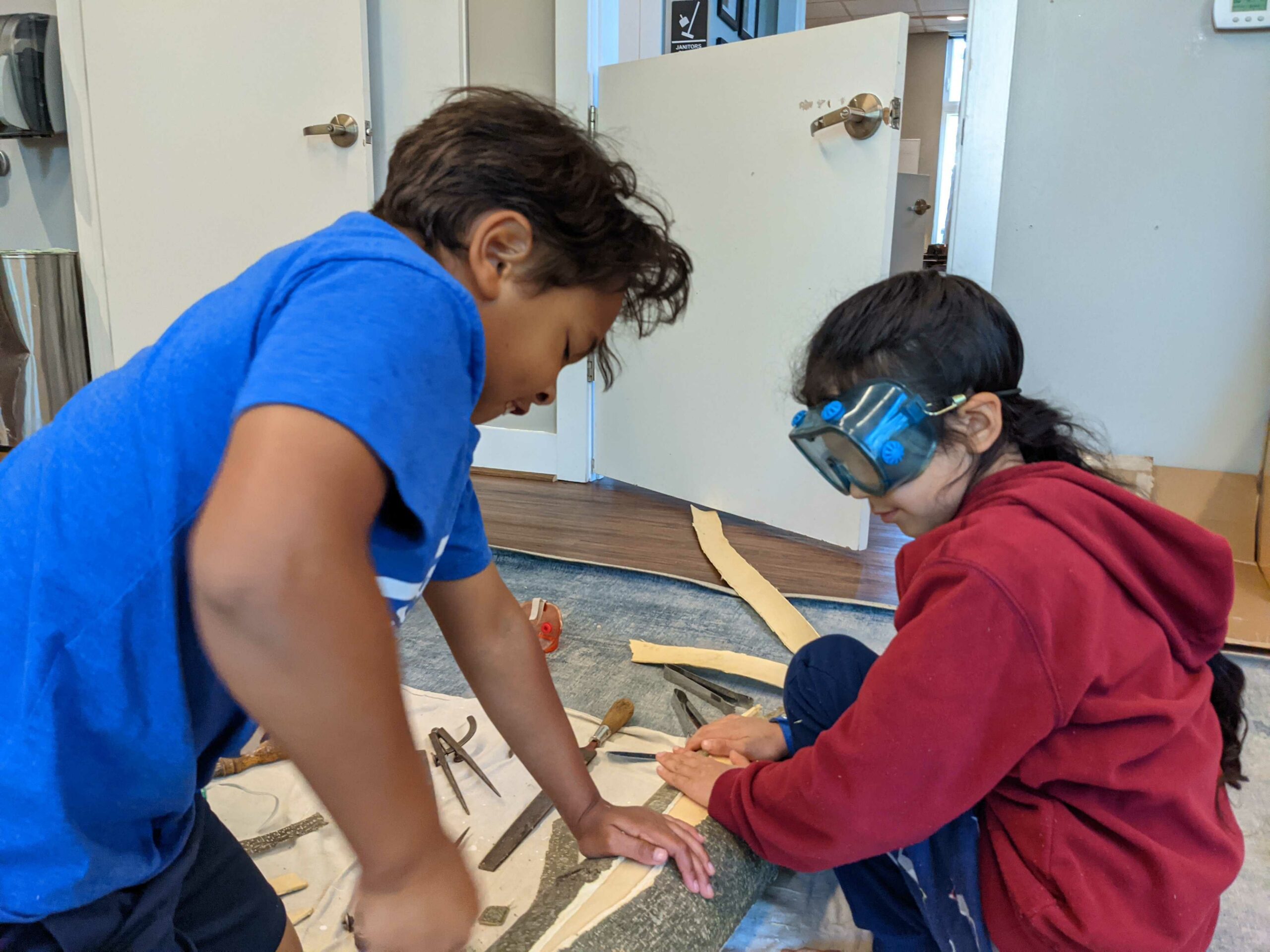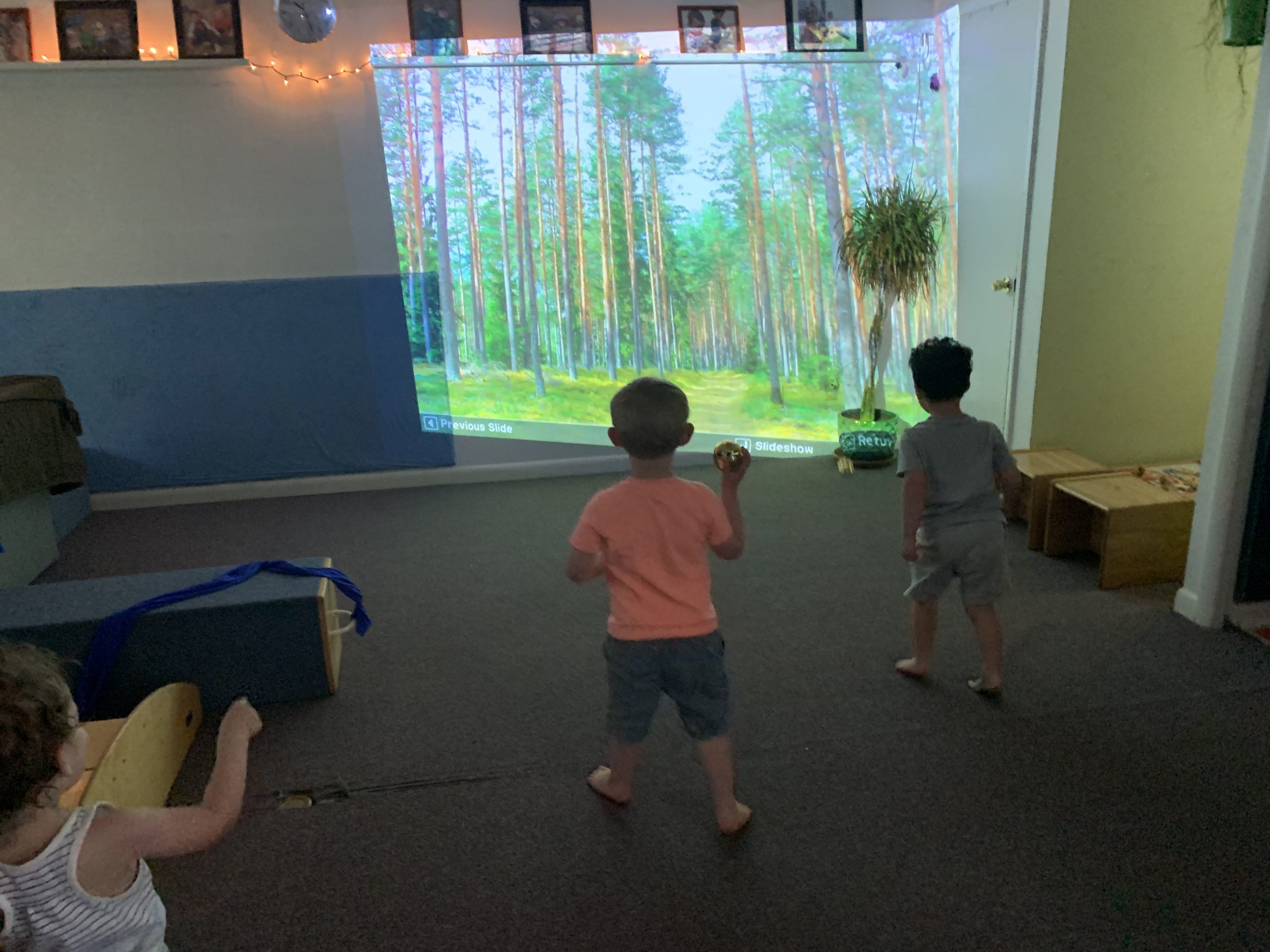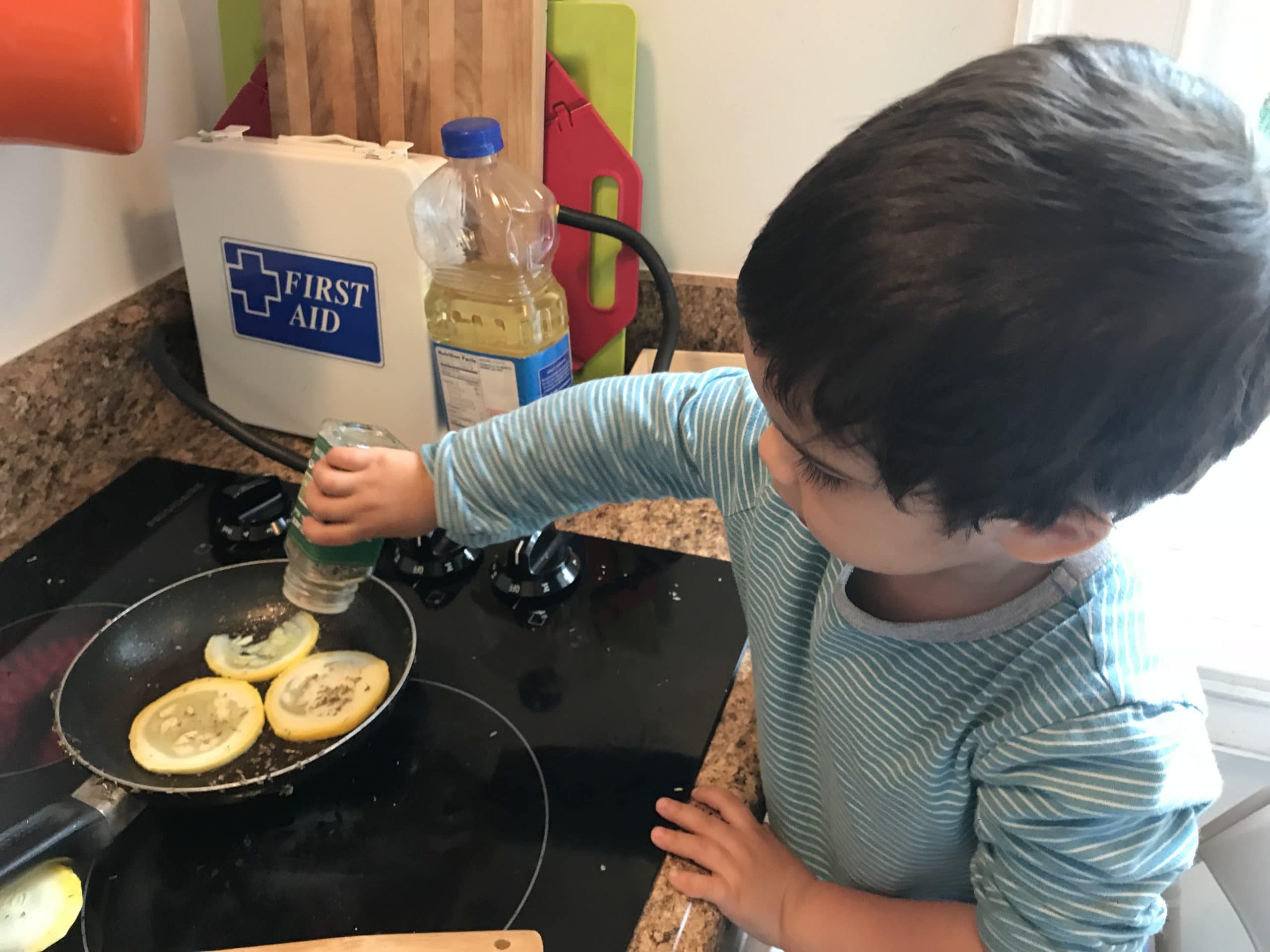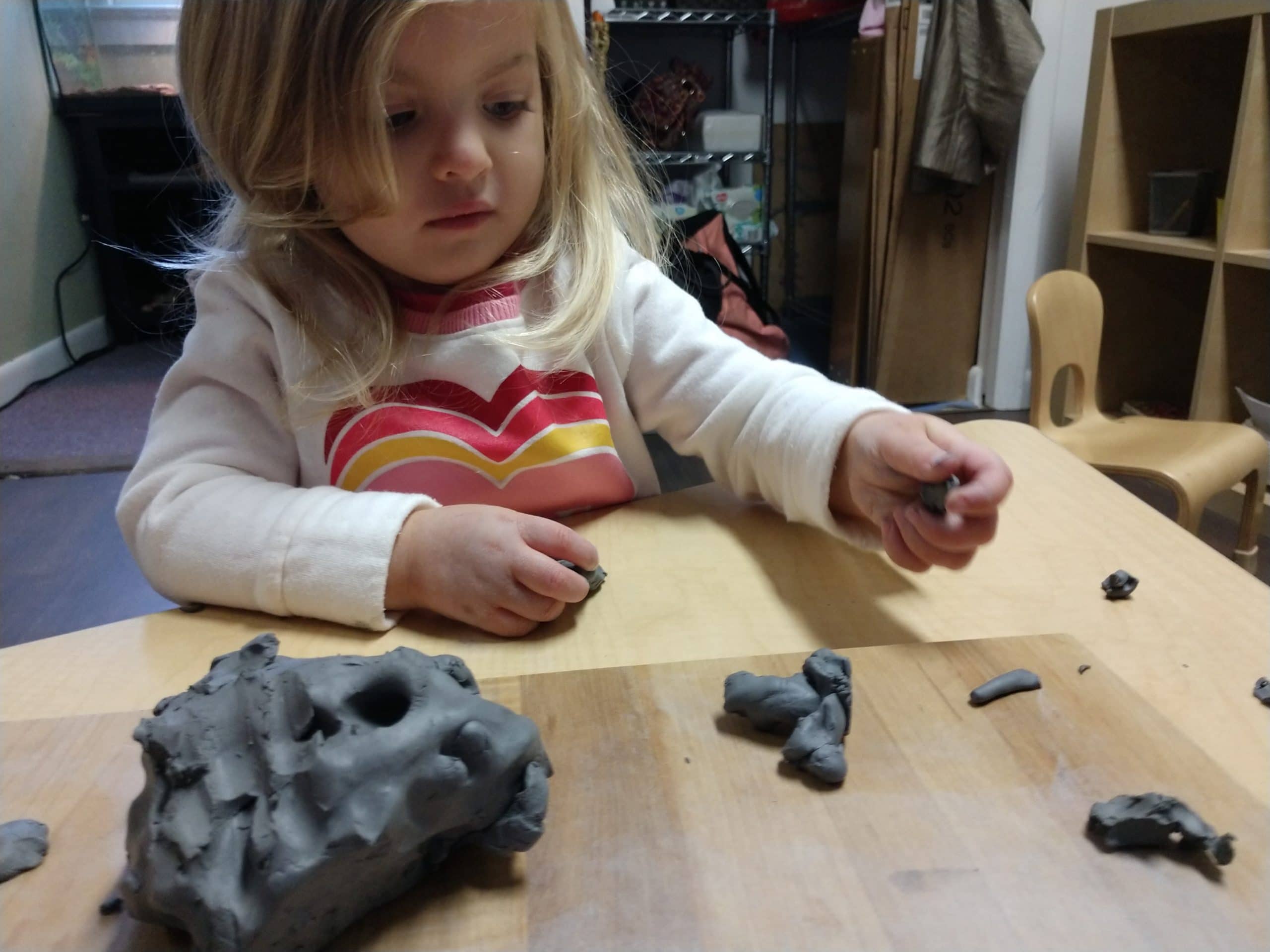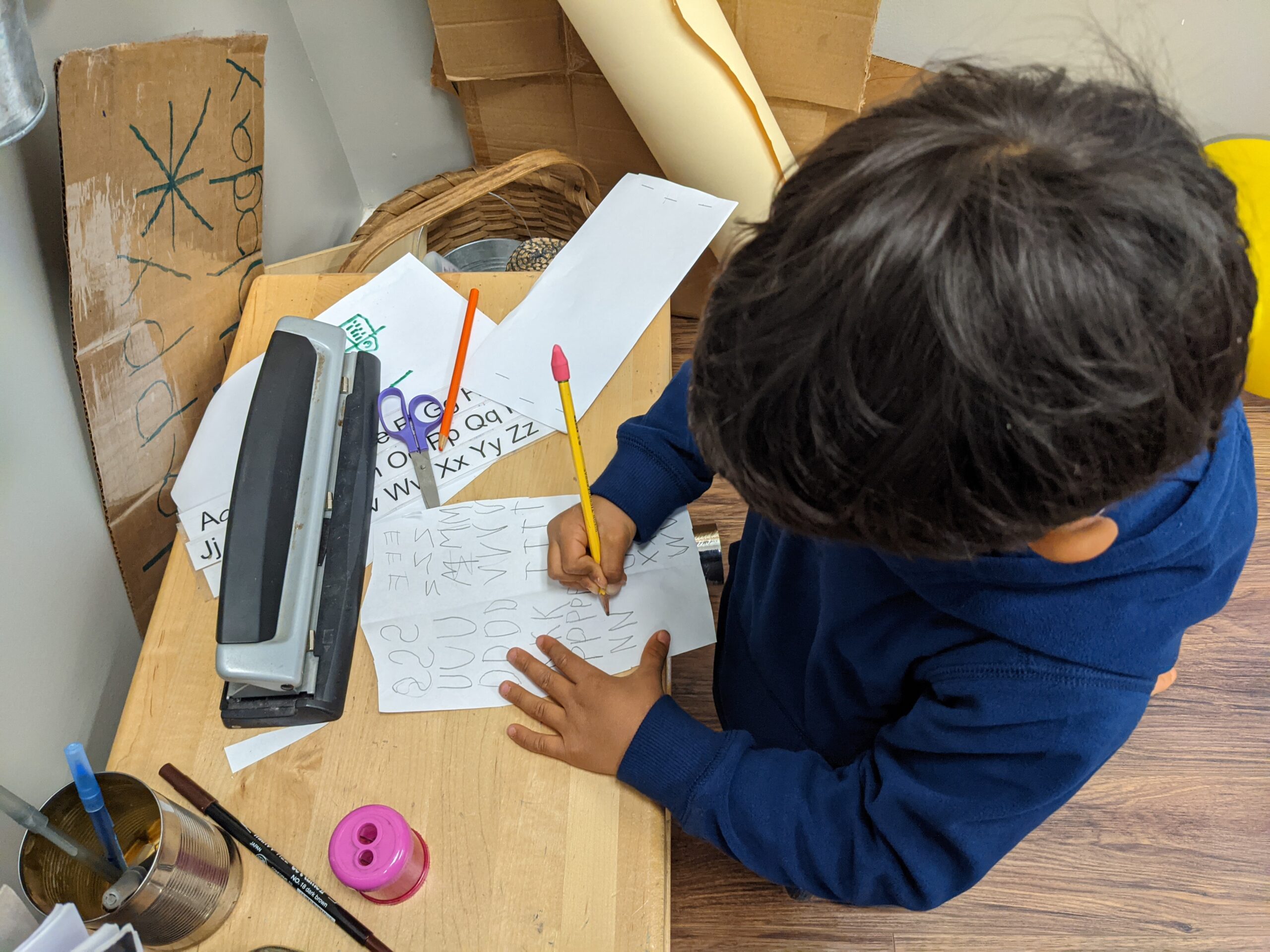The Learning Studio
The Learning Studio serves fifty children from the ages of three to eight. In the Learning Studio, children free flow between five indoor spaces, each focused on a specific type of learning.
Explore Our Spaces
Reflective teachers who believe children learn through play do not take a passive role. While our teachers do not push information on children, they do play a vital role in learning through deep engagement with the children in their work. Reggio-inspired teachers provide important context for children's learning. Through their own reflective practice, teachers offer children materials, design spaces, and make invitations to drive play deeper. Teachers also actively coach children to problem solve, re-represent their ideas, and document their own learning. Teachers reflect children's learning back to them to invite children's reflection.

Yes, Learning through Play Ages Three-to-Eight
Mixed age groups are ideal for learning. Mixed age groups allow young children to learn from one another and teach each other. Children develop deep interests in math, science, reading, and writing in their early childhood years. The best way to learn is when you're ready and interested. When learning through play teachers can easily differentiate learning. Having a diversity of ages allows us to support children based on their own individual paths.
Sometimes family's pause because they envision two children of each age sitting working on a project. We do not expect a balanced mixed age group throughout the children's projects. Children choose their working groups and therefore will gravitate towards learning groups based on their interests, their relationships, and their personalities. It may mean there are age separated groups and it may not but the groups will be based on the children's work not their ages.
Yes, we will serve as a private K-2nd program for children. Both the 3-5 year olds and the 6-8 year olds will work together in a play based learning environment. While we expect that many children will graduate on to public schools at age five, we will provide an innovative space for learning through early childhood.
Even when families believe deeply that children learn best through play, it is normal to be concerned about how your child's learning will translate to new environments. The truth is we don't learn to be good at sitting in a chair and following directions by doing it as practice. Young children simply learn best through play, and when given ample time for play in early childhood, children's brains and bodies develop healthy pathways for regulation that will support them as they move into a new environment.
Though we are not doing worksheets or tests, we are regularly assessing children's learning. Our goal in assessment is to inform our curriculum and provide teachers the feedback they need to support each child. Our teachers know the standards that the public schools and other new environments will expect young children to meet. Awareness and authentic assessment will allow us to adapt our support when necessary.
Your child will surely notice the change when they enter a new environment, but they will be prepared. Your child will be developmentally ready to handle the new challenge. Armed with self-regulation skills, tools for problem solving, a deep understanding of their own identity, communication skills, and knowledge about their individual learning style, your child will be poised to thrive with whatever challenge arises.
Daily Schedule
The preschoolers have an open and flexible daily schedule with lots of time for uninterrupted play. (Play is learning!) Each day, children will be encouraged to play inside and outside. We do not focus on children playing in each space each day, but over the course of a week or so, we encourage diverse types of play.
Morning Explorations
Morning snack will be available for children to drop in when desired. Children will be able to move through the space and self initiate work or join a group who have begun a project. After a big block of time indoors we move outside for outdoor explorations. Teachers will have specific scheduled offerings* for children to opt into. Teachers will also facilitate and coach children’s work and encourage children to deepen their work (invite others into play re-represent ideas, get a snack, etc).
Lunch and Reflections
Mid day lunch bunches are an important time for children to pause and reflect on learning. A small group of children eats lunch with the same teacher(s) each day to ref
Rest and Digest (Siesta)
Teachers will check in with each child before rest and invite them to draw or write their ideas in their play plan. Sleep will be offered for those who are still napping. Independent reading or writing and rest time will be available for everyone.
Afternoon Explorations
Afternoon explorations parallel the morning. Children have a choice of work indoors in any of the five classrooms then move outdoors for final explorations and pick up.
*Types of schedule offerings teachers might invite could include, reading of a new book at a specific time in the literacy lounge, baking of bread in the kitchen, planting in the garden, showing a play the children are putting on. These things would be on the schedule so that children could consider them when making their plan for the day. All children have a scheduled walking field trip at least once a week.
Parenting is HARD.
You don't have to do this alone.
We know that parenting and teaching is challenging work. Part of the Our Neighborhood purpose is creating a space for a learning community. All caregivers are welcome to learn with us. Together we can transform the world for the next generation.

